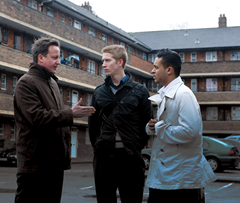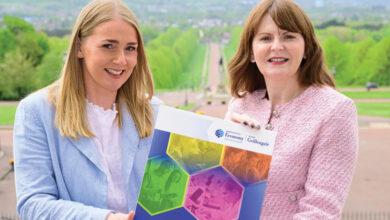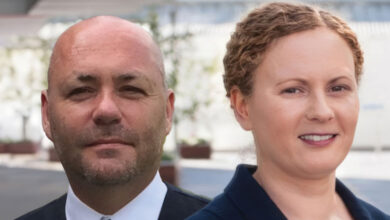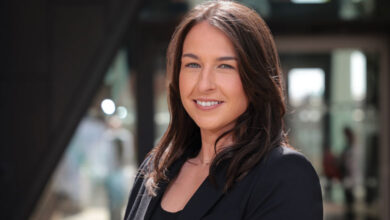Cameron’s Big Society
Not only is the UK’s economy broken but its society as well. That was a recurring theme throughout David Cameron’s time in opposition, with the aim of a big society taking over from big government.
Its immediate roots are in his re-invention of the Tories, when the new leader maintained that there was such a thing as society, contrary to Mrs Thatcher’s famous quote. However, this one nation conservatism is an old idea, going back to the days of Benjamin Disraeli.
“Two nations between whom there is no intercourse and no sympathy,” he lamented as he looked at unequal Victorian Britain, “who are as ignorant of each other’s habits, thoughts, and feelings, as if they were dwellers in different zones, or inhabitants of different planets: the rich and the poor.”
Cameron is a self-professed one nation conservative but, during the recession, the party’s rediscovered reputation for social concern started to contrast with its enthusiasm to cut the deficit. The big society concept came to the fore towards the end of last year and combines the idea of the state doing less, therefore more cheaply, and society becoming stronger and doing more.
At the Tory conference last October, he explained his DNA was “family, community, country” which he was in public service to “protect, promote and defend”. He also knew that not all people shared his privileged upbringing, with many children “never knowing the love of a father” and being held back by their homes and schools.
Labour’s answer to social breakdown, he contended, was more government but in his view, “government got too big, did too much and undermined responsibility” even though it had the best intentions.
The idea was articulated more clearly when Cameron delivered The Guardian’s Hugo Young lecture on 10 November. For centuries, he explained, the state had expanded, and generally for society’s good. Poor laws and Factory Acts, the abolition of slavery, pensions and the welfare state – all were praised. Between 1961 and 1968, the number of people in severe poverty fell by 900,000.
1997 onwards saw the state’s most significant expansion. Progress had undoubtedly been made e.g. tax credits and increased health spending, but youth unemployment also rose and the gap between the richest and poorest widened. In a reversal of the 1960s boom, he claimed that 900,000 more people were living in severe poverty than 10 years ago.
Globalisation was part of the problem; people with a good education and skills had plenty of opportunities and rewards but the unskilled were increasingly “shut out of the global economy.”
He added that the UK’s culture of responsibility, when the welfare state was created, was eroded as the state expanded and took away the things that people should be doing for themselves and others.
“Human kindness, generosity and imagination are steadily being squeezed out by the work of the state,” Cameron claimed, pointing especially to the proposed strict vetting system for volunteering with children. People he met in his constituency work were better off if they claimed benefits rather than working.
“What has come to matter most is not our place in wider society, but our own personal journey and our right to pursue our own happiness regardless of others around us.”
The plan
Many of Cameron’s answers are devolved in Northern Ireland but the ideas are transferable.
The first step was to help people, families and communities “take control of their lives”. This involved keeping Sure Start but involving more voluntary groups and focusing on the poorest families. Selfgoverning schools, accountable to parents, were also backed and in welfare “payment by right” would be replaced by “payment by results”.
Recognising marriage in the tax system would help with the poorest couples with children gaining an average of £1,500 per year, lifting up to 300,000 children out of poverty. Families would also be encouraged to stay together, therefore giving children a better start in life.
Secondly, the state would be used to remake society. Power and control would be redistributed from central government to individuals and local communities, or local councils if that were more practical. Education reform, with parents setting up their own schools, was highlighted: “If you give people more responsibility, they behave more responsibly.”
Decentralisation is accompanied by more transparency. Giving people information, including details of all government spending, meant giving them more power e.g. small businesses and social enterprises could look at what the state was doing and see if they could do it better.
Improved accountability was also important. The state’s attitude was often “here is what we will do for you, take what you’re given and be grateful for it.” People would be given more influence over local services e.g. local beat meetings so they can challenge the police about their performance.
Big promises
- Continue to fund Northern Ireland according to its needs
- Protect pensions and the pension credit
- Support Sure Start
- Protect free TV licenses for over 75s and free eye tests for over 60s
- Keep free prescriptions for all
- Keep the winter fuel allowance
Excerpts from the Conservative and Unionist contract with Northern Ireland
Contract
Cameron’s own contract with Northern Ireland, co-signed by Reg Empey, pledges to “mend our broken society” and emphasises Tory policies on marriage and health spending.
Socially conservative, the DUP echoes much of Cameron’s big society themes in its manifesto. It wants to see a “greater sense of community”, encourage social enterprises and value the work of faithbased organisations. The “unravelled fabric of our society” must be repaired.
Sinn Féin and the SDLP see the state having a greater role to play. Working people had “nothing to gain” from Tory policies, said Gerry Adams.
Alliance provided some of the harshest criticism. Candidate Gerry Lynch stated: “Bringing up children, whether inside or outside marriage, is costly and parents deserve the support of society. But I don’t think it’s the business of the state to punish people because their private lives don’t fit a certain mould.”
Of course, in a coalition, the big society proposals cannot be guaranteed. The new Government’s stated values, though, sound similar: freedom, fairness and responsibility. While what that really means in practice is yet to be spelt out, there is no doubt that it has a lot in common with the big society.






